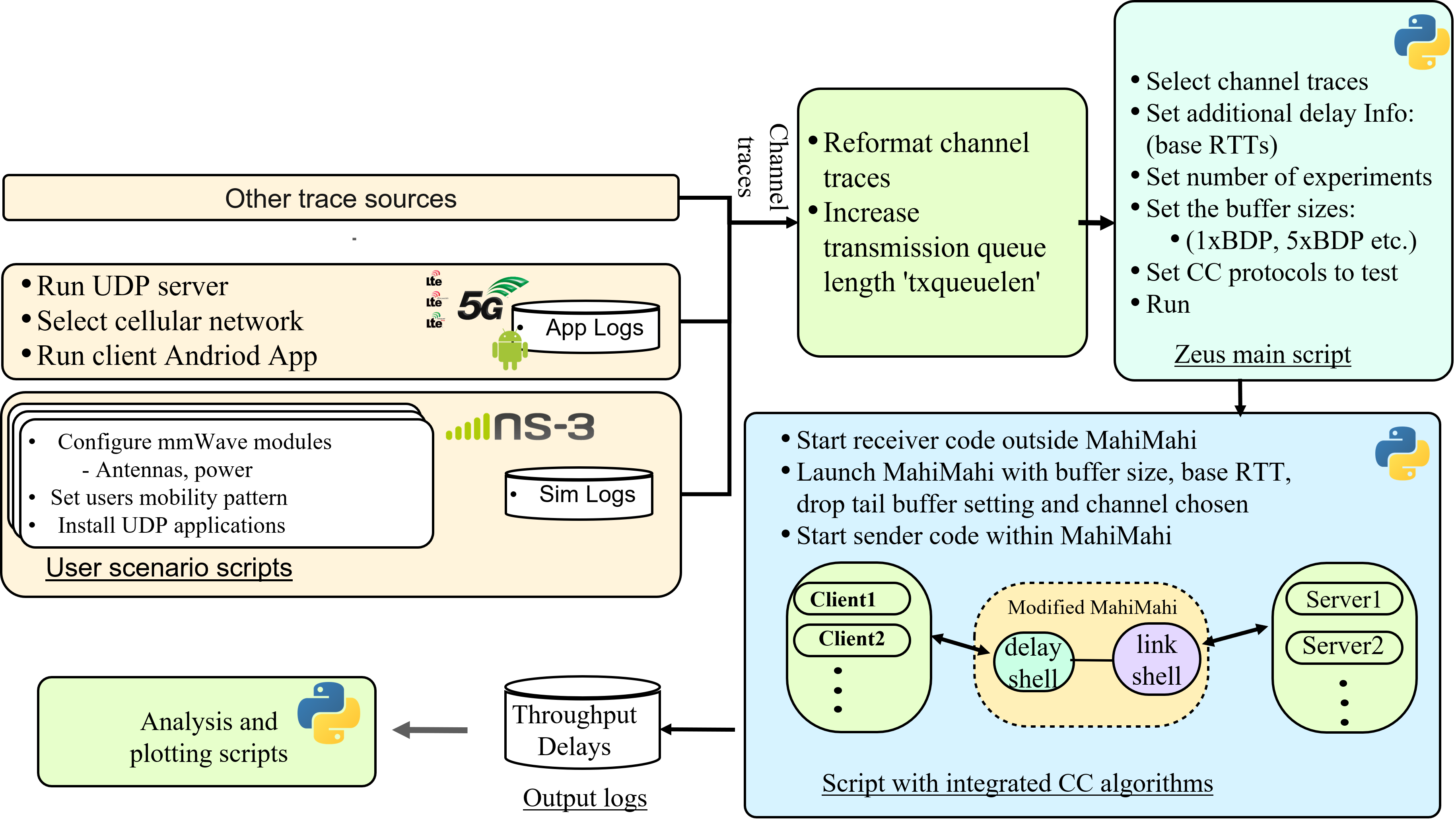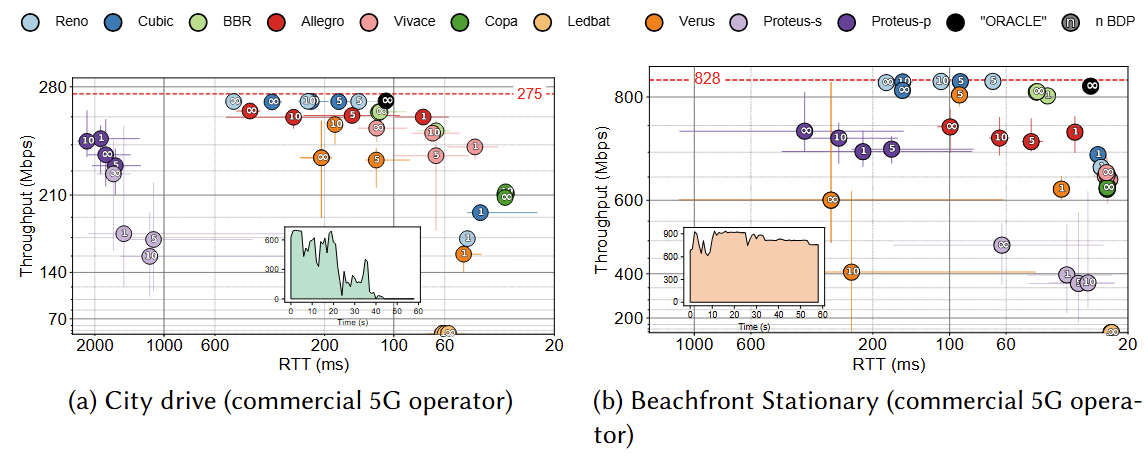Rethinking Congestion Control in 5G

Overview
The shift to 5G networks has introduced a wave of network challenges—short-timescale variability, high-throughput demands, and bottleneck buffer sensitivity. Two novel frameworks, ALCC and Zeus, offer orthogonal but complementary approaches to tackling these issues. ALCC enables user-space deployment of congestion control over legacy TCP tunnels, making real-world deployment feasible even with application-layer constraints. Zeus presents a unified benchmarking framework to rigorously evaluate congestion control algorithms in real and emulated 5G environments. Together, they pave the way for a rethinking of congestion control strategies in mobile systems.

Key Capabilities
- Application-Layer Congestion Control over TCP tunnels without OS/kernel changes
- Easily deploy Verus, Sprout, and Copa in user-space with comparable performance
- Unified 5G CCA benchmarking framework supporting real and emulated network traces
- Enhanced Mahimahi for multi-Gbps 5G channel emulation
- Side-by-side comparison of 10 CCAs with fairness and harm analysis

Results
- Achieves 90–97% of native CC performance (throughput & delay) from user-space
- Enables server-only deployment for Verus and Copa with zero client-side changes
- Cubic and Reno dominate throughput on large-buffer 5G channels; Copa and Vivace excel at low latency
- BBR is the most balanced across throughput and delay tradeoffs in varied 5G topologies
- Includes fairness and harm metrics to evaluate CCA coexistence with legacy TCP
Papers
Collaborators
- Muhammad Khan (NYUAD)
- Rohail Asim (NYU)
- Luis Diez (University of Cantabria)
- Ramon Aguero (University of Cantabria)
- Lakshmi Subramanian (NYU)
- Yasir Zaki (NYU Abu Dhabi)